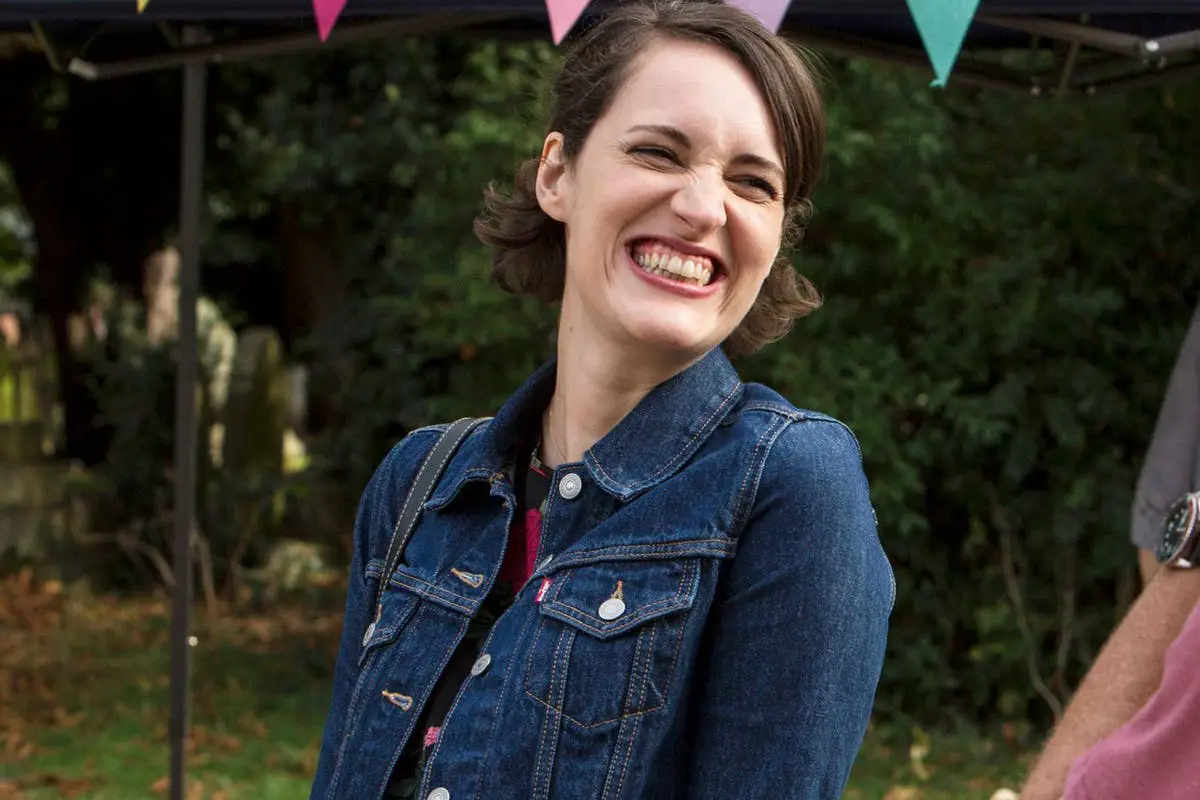With six Emmy wins under its belt, “Fleabag” is a certified phenomenon, matched in buzz only by its mastermind creator, Phoebe Waller-Bridge. Entertainment’s new “It Girl” is a wild talent who can drop your jaw, tickle your funny bone and punch you in the gut, all in a single episode. While her show has ended for now, her affinity for storytelling and newly found star power has prompted her co-producer, Amazon, to reserve her talents for the next three years.
The contract means Waller-Bridge will create exclusive television content for the streaming giant for a whopping annual paycheck of $20 million. She’ll get to write, produce and act in as many projects as she can, giving her fans continuous content and likely racking up many more awards and accolades.
With her place in international media cemented, it’s inspiring to look back on the long path she traversed to success. It may seem like she abruptly entered the scene and shot straight to the top, but her fame has been in the works for years.
https://www.instagram.com/p/B2v2D3Vnu3V/?utm_source=ig_web_copy_link
“Fleabag” actually began as a small-time, one-woman monologue written and performed by Waller-Bridge for the first time in 2013. Both versions possess the same major plot points and off-color wit, but the series vastly expands upon the play’s barebones premise. In the theater production, Waller-Bridge sits alone upon a chair onstage and addresses her audience with a spiel akin to the show’s meta-narration, except that it makes up the entirety of the piece.
The play reduces major side characters to disembodied voices, and apart from lighting cues, intermittent props and Waller-Bridge’s dynamic expressions, it’s a primarily auditory experience. Because she still performs it occasionally, the style can be quite jarring for any attendee with knowledge of the series. Yet the character Fleabag remains mostly the same: a quick-witted, complicated, sex-obsessed, modern London woman struggling with contemporary feminism and grief for her dead best friend.
“Fleabag” the play premiered at the 2013 Edinburgh Festival Fringe and won the Fringe First Award. Critics commended Waller-Bridge’s performance, her raunchy hilarity and unapologetic take on 21st century femininity. Furthermore, they applauded her handling of such a complex character, one who’s big and brash to distract from her insecurities and lack of confidence in her place in the world. Plus, it was a time when a woman joking about sex was still shocking, so she got plenty of praise for pushing boundaries.
However, “Fleabag” and Waller-Bridge soon fell off the radar. Her inability to crack into the mainstream with the play forced her to settle for small roles in various productions for a while. From a side character in BBC’s popular “Broadchurch” to a part in the lesser-known romantic comedy “Man Up,” Waller-Bridge accumulated an eclectic collection of resume entries. But for several years after her theater debut, she remained a relative nobody.
The Renaissance woman got her big break in the form of her own miniseries, “Crashing,” which premiered in early 2016. Pegged as head creator, writer and part of the ensemble cast, Waller-Bridge finally got the chance to boast her talents to a massive, international audience. While not wildly popular, her work again appealed to critics, and apparently to Amazon as well. Soon after, the streaming site would bring her on to adapt her brainchild, “Fleabag,” for the small screen.
Amazon clearly had faith in Waller-Bridge’s abilities. Beyond letting her write and star in the adaptation, they named her executive producer and basically gave her total power to manifest her creative vision. After a reported bidding war with Netflix, Amazon ordered a single season and “Fleabag” the television show was born.
But for whatever reason, the first season found little acclaim outside critics’ circles and media obsessed bubbles. Like many other critical darlings, “Fleabag” struggled to penetrate mainstream audiences. Its unapologetically distinctive and, perhaps, unlikeable protagonist and narrative style might have proved too quirky for the general public. As tends to be the trend with streaming services, “Fleabag” seemed like another single-season gem hidden in the rough that would get canceled for lack of reception.
And it almost was. Waller-Bridge even admits to not envisioning a follow-up because she thought Fleabag’s story was complete. Like the original theater play, the show opened with an outwardly extroverted woman boasting her sexual prowess and supposed insight into the inner workings of the world to the unseen audience she addresses.
And still, the show closed with the broken shell of this woman, afraid of the audience that watches her because we’ve seen the bombshell of her gravest mistake in life: the time she slept with her best friend Boo’s boyfriend, which indirectly led to her tragic death.
Waller-Bridge asserted an artistic desire to leave the story at that because she couldn’t justify “a reason for why [Fleabag] talks to the camera again.” Because her narration is integral to the storytelling and because her character arc in Season 1 involves her realizing she can’t keep up her cheeky facade and running from the judgment of her audience, “Fleabag” had no real reason to continue.
That is, until Waller-Bridge devised a character who could immediately see straight through Fleabag’s front: the hot priest. Season 2 centers around his relationship to Fleabag; the first episode even features a cold open, in which she announces the season to be “a love story.” His uncanny ability to see her as she really is and even tell when she’s addressing the audience drives her romantic interest in him, which in turn drives much of the season’s plot.
The original play and the first season may be able to stand alone, but it’s a good thing Waller-Bridge decided there was more of Fleabag’s tale to tell. The second season somehow surpasses the first in almost every way. Funnier, bolder and even more outrageous, it also substantially builds off the first and fleshes out the characters. Compared to the full series, the original hourlong play feels one-note and incomplete, evidencing just how much she’s grown as a creator.
Again, Waller-Bridge is claiming to be done with “Fleabag.” And perhaps it’s for the best. The story finally feels finished because Fleabag has worked through her trauma and come out a better person. Even so, “Fleabag” will always be the show that made Waller-Bridge famous and accompanied her along the path to mega celebrity.
https://www.instagram.com/p/B3FU13eBVsD/?utm_source=ig_web_copy_link
If her massive haul at the Emmys or the fact that she’s now a household name isn’t proof enough of her talents, then Amazon shelling out millions to “reserve” her should be. Here’s to hoping Waller-Bridge keeps gifting the public with new, lovable fleabags for years to come.















